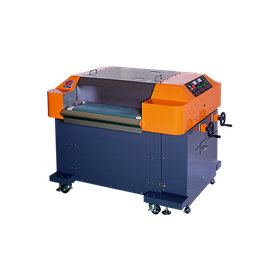Conductive carbon thin films are formed by sputtering. Stable film formation is achieved through a simple process with inert gas and carbon target at low temperatures (below 400°C).
Using the independent high-density sputtering method, conductive carbon thin films are formed through a process equivalent to metal film deposition via arc discharge magnetron sputtering (ADMS method). Compared to conventional sputtered carbon thin films, these films are characterized by significantly higher density and adhesion. Due to their conductive properties and film stability, they are suitable for new fields such as energy and biosensors. Conductive carbon thin films excel in hardness and surface smoothness, making them applicable for surface treatment of mechanical parts (tribological applications) due to their high adhesion to metals.
Inquire About This Product
basic information
Equipped with a uniquely developed arc discharge type magnetron cathode. Capable of forming not only conductive carbon thin films but also various reaction films (nitride films, oxynitride films). The arc discharge type magnetron cathode also supports ion etching and nitriding of substrates before film formation. The multi-cathode allows for the layered deposition of an adhesion layer and conductive carbon film tailored to the substrate. Supports new material development, such as the addition of metals to conductive carbon films through simultaneous sputtering. Offers two models: a large batch type for surface treatment with a proven basic chamber configuration and a compact type for R&D.
Price information
Please contact us.
Delivery Time
※Please contact us.
Applications/Examples of results
For new device R&D Surface treatment for machine parts
catalog(9)
Download All CatalogsCompany information
Shinko Seiki, as a technology-driven manufacturer, leverages the numerous know-how accumulated particularly in the field of vacuum equipment to deliver innovative products that meet user needs. In recent years, the company has also been challenging cutting-edge fields such as electronics and new materials, aiming to develop truly valuable hardware and software through the advancement of distinctive technologies and their organic integration.

















![Deburring Machine "Twin Baritor" [Eligible for Small and Medium Enterprise Productivity Investment Subsidy]](https://image.mono.ipros.com/public/product/image/6d3/2000308654/IPROS16685940644635288329.png?w=280&h=280)


